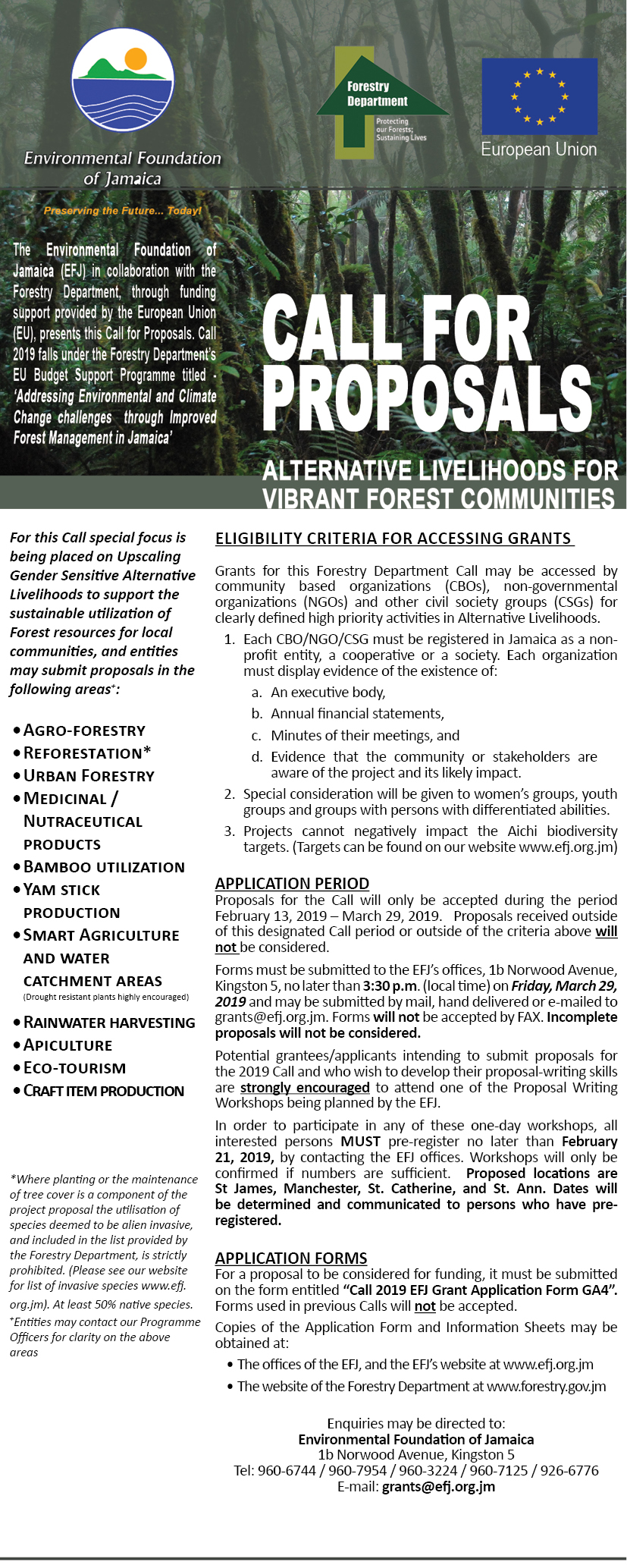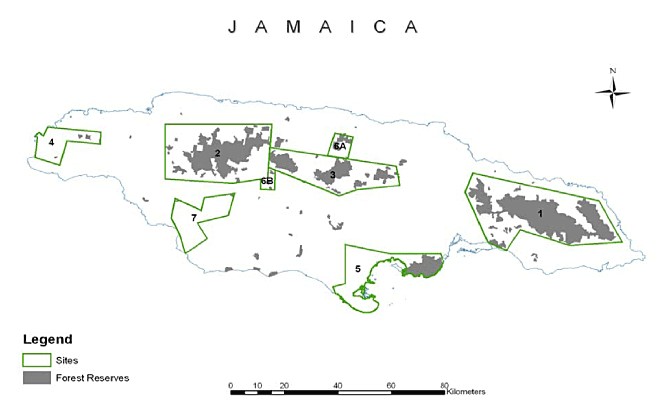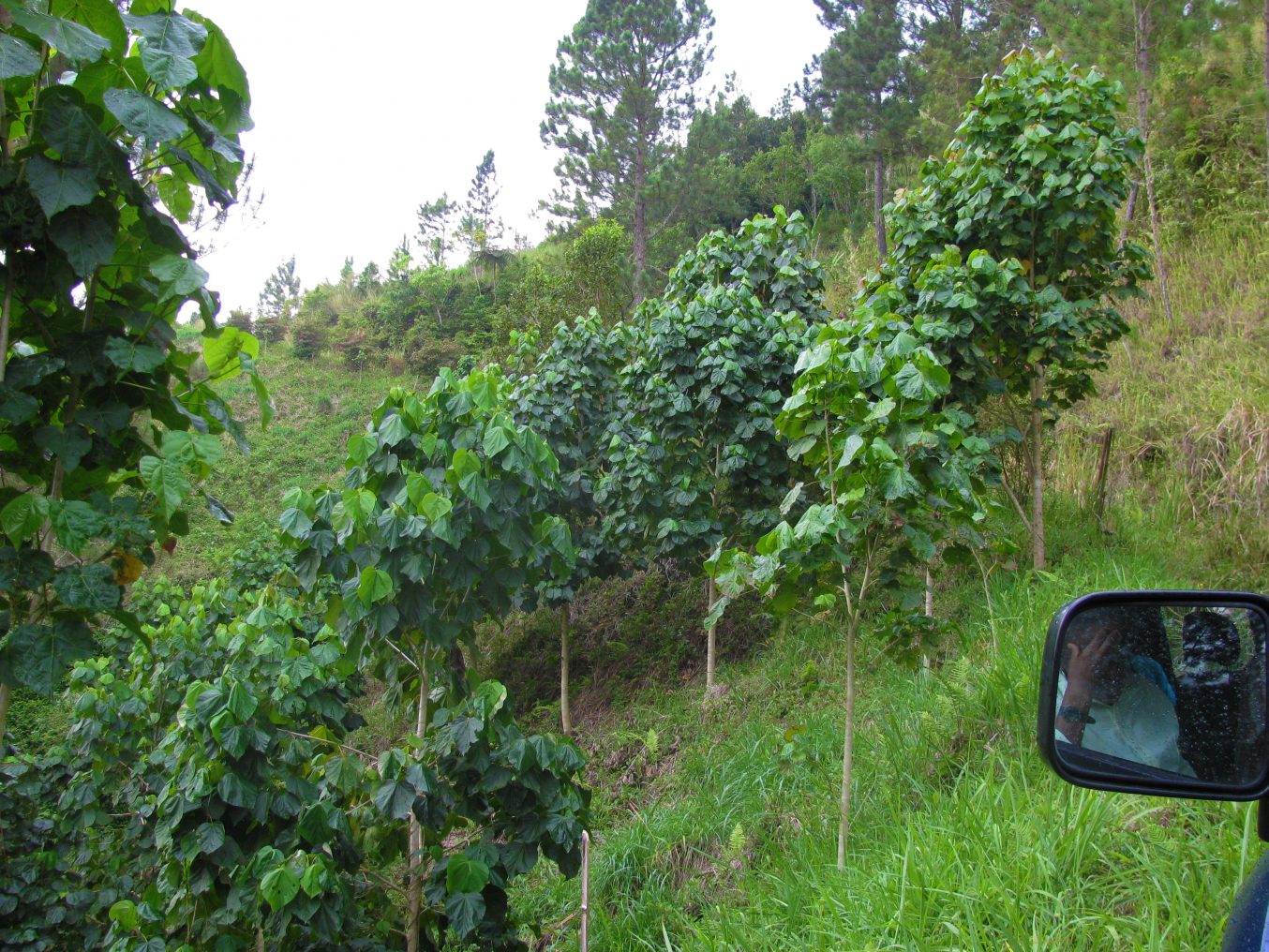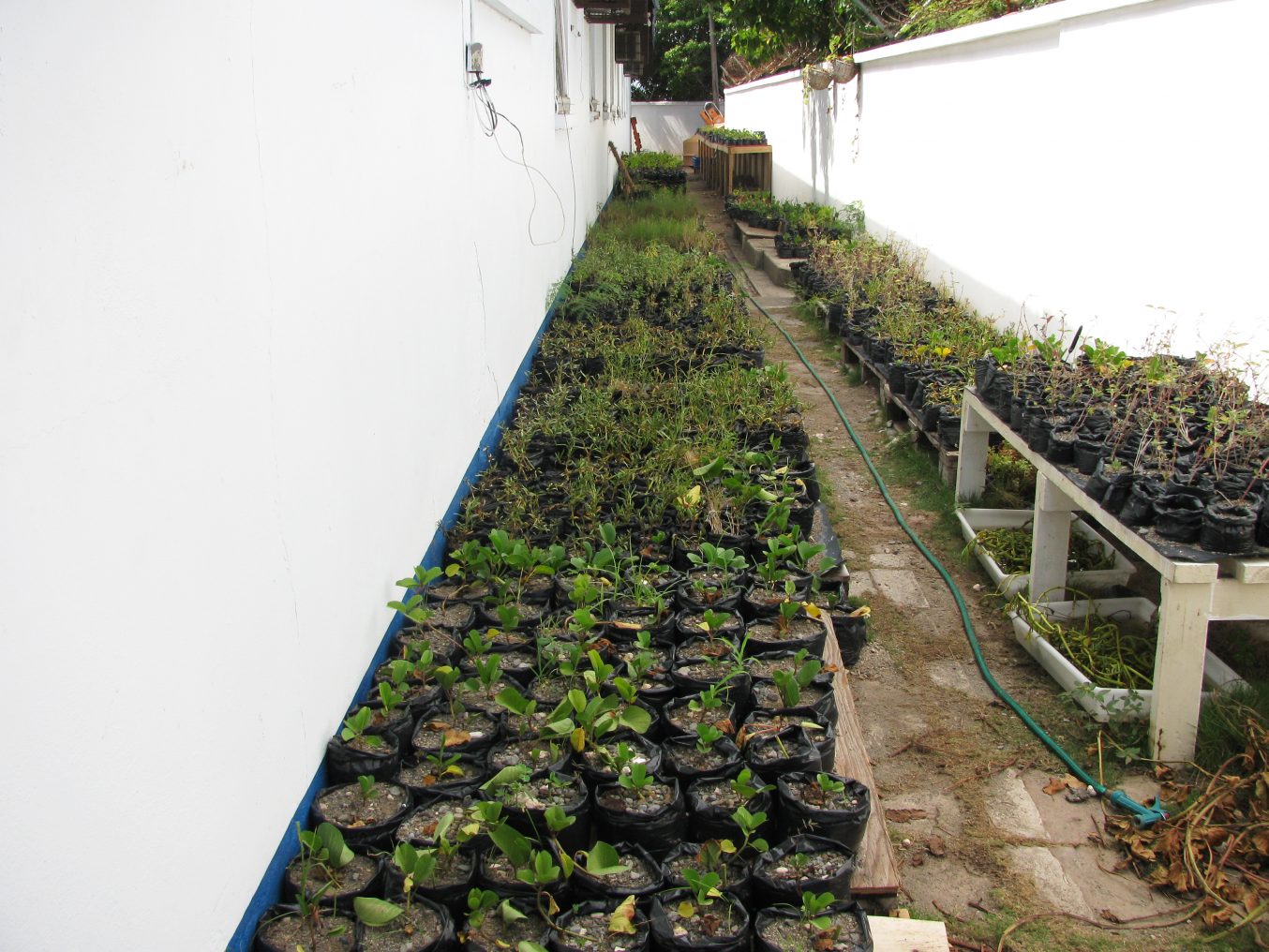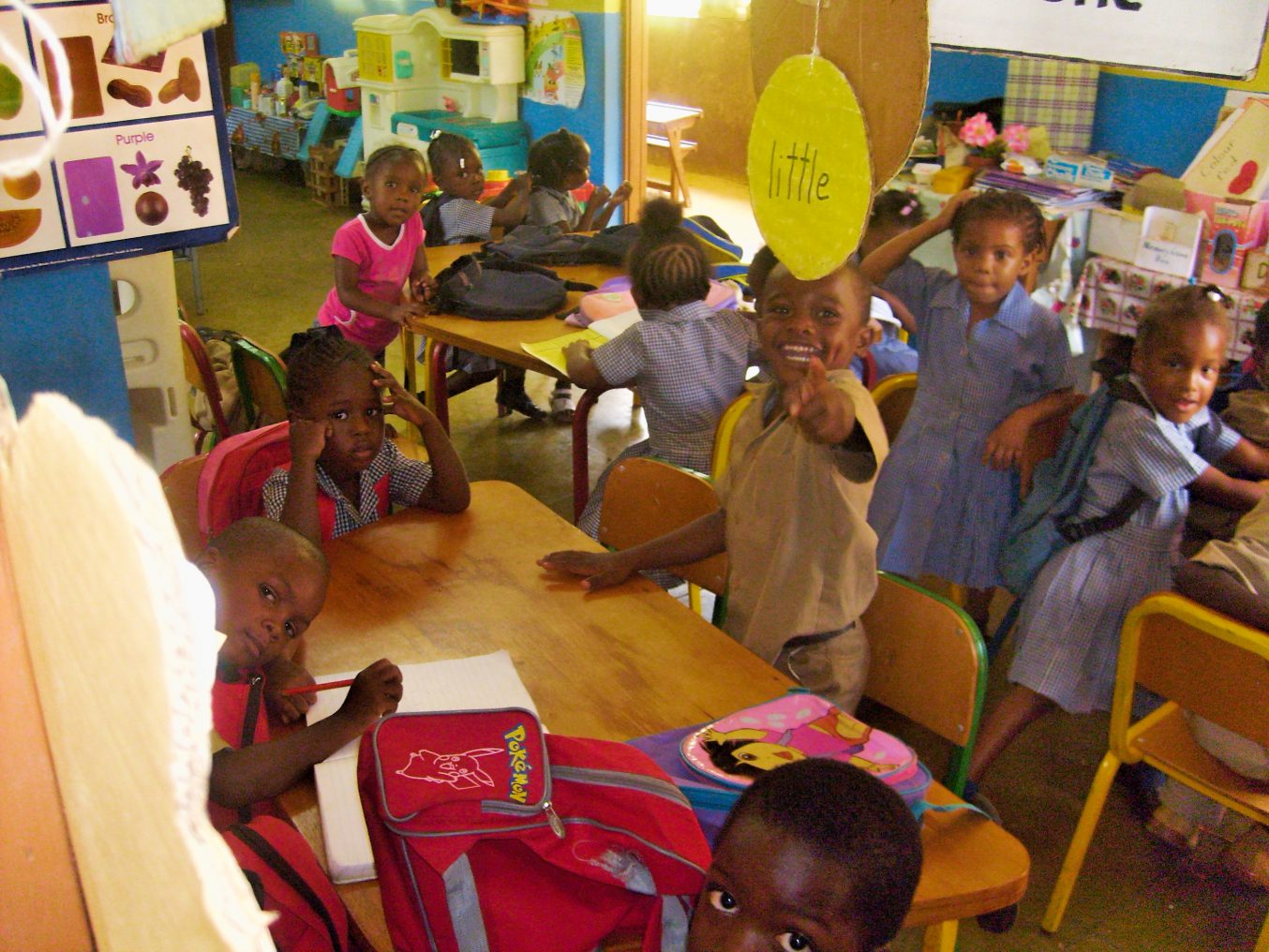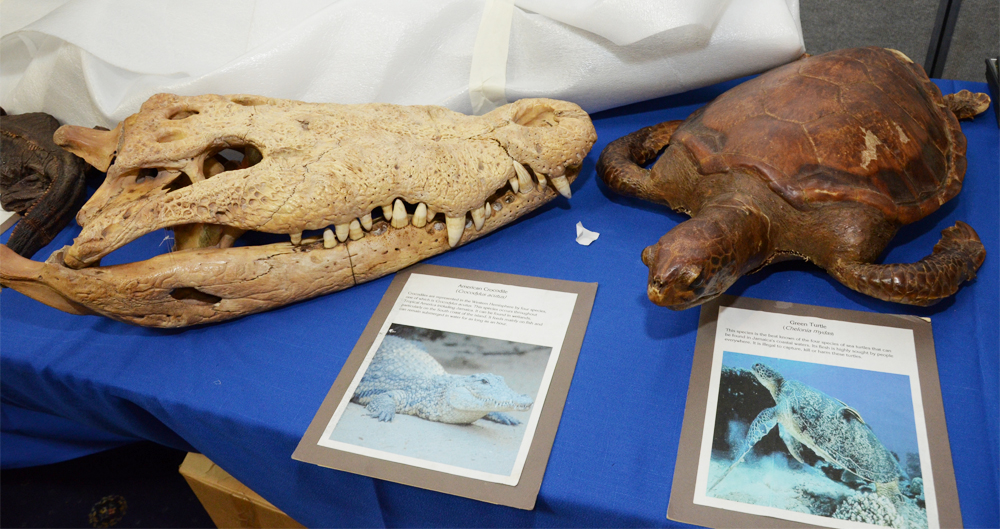“We want to help the community to find alternatives,” said Toussaint Brown.
Mr. Brown, a member of the Sawyers Local Forest Management Committee Benevolent Society, was speaking at the grant signing ceremony for thirteen community-based organizations under the Environmental Foundation of Jamaica’s (EFJ) Forest Conservation Fund. The grants totaling J$86 million were signed on July 3, 2017, and projects are now up and running.
The Forest Conservation Fund (FCF) supports local tropical forest conservation activities and the protection and management of forest reserves and national parks. “Via a competitive grant application process, we provide dedicated funding to promote sustainable use of our forest resources, and work to address the cause and effect of threats to our forest resources,” notes EFJ’s Chief Technical Director Allison Rangolan. The aim of the grants is to support non-governmental and community-based organizations’ efforts to sustainably protect, conserve and manage Jamaica’s forests, at the same time building their capacity as organizations for the future.
Mr. Brown was talking about alternatives to simply taking from the forest – for yam sticks, for example. The constant nibbling away at the edges of the forest in his district is combining with other factors to degrade the environment. Mr. Brown is well aware of the added stress of climate change: “It is affecting us,” he says. “We cannot predict the rainfall.” The alternatives his group is working on are beekeeping and small-scale agroforestry. The residents are also committed to reforesting acres of denuded woodland, and they are planning to hold public education sessions at twelve local schools on the importance of forests.
Environmental awareness programmes such as National Tree Planting Day, which took place across the island last week, are growing in popularity. The day was recognized across the island, with activities involving schoolchildren and youth high on the agenda. The Forestry Department of Jamaica shared important information about planting and caring for trees, and made hundreds of saplings available for planting. There is nothing like getting your hands dirty and planting a sturdy young tree to create a sense of responsibility for the environment.
Equally important, however, are the day to day practices of rural residents – not just on one particular day, but on an ongoing basis, over the years. While the EFJ grants are providing valuable support to communities seeking solutions, maintaining the focus is critical for their success and for the sustainable development of communities. Planning, implementing and completing a project is not the beginning and the end of the story. The EFJ’s support is intended to have a growing – and lasting – impact.
So, why should we care about forests? Chief Technical Director at EFJ Allison Rangolan explains the many ways in which they create value:
“We obtain many products and materials and generate by-products from our forests – food, medicines, cosmetics, et cetera. Forests protect our watershed and reduce soil erosion and siltation in our water as the tree roots hold the soil in place, and their canopies help to reduce the force of the rain drops on the soil; this allows water to gradually percolate (seep) into the ground and recharge the aquifers from which we obtain water. Our forests produce oxygen and absorb carbon dioxide for photosynthesis, while reducing the greenhouse gases in the atmosphere which contribute to global warming and climate change.”
Polly-Anna Bailey sees beekeeping as a viable long-term occupation for her community of Treadlight, which lies at the foot of Mocho Mountains, in the Teak Pen forested area of Clarendon. There is high unemployment in the area, and coal burning is a common practice. Deforestation has resulted in flooding and soil erosion. Ms. Bailey, a member of the Treadlight Youth and Community Club Benevolent Society, believes utilizing natural resources is the way to go. Her group are planting fruit trees, providing forage for bees. The insects do not only produce honey, but play an important role in the reproduction of native trees, shrubs and grasses, improving the biodiversity of the surrounding forest; not only taking, but giving back.
There is no doubt that forests are a long-term project; restoration and reforestation does not happen overnight. For many rural communities, short-term solutions such as slash-and-burn techniques and subsistence farming may seem the best way out; but as the famous writer George Orwell wrote:
“The planting of a tree, especially one of the long-living hardwood trees, is a gift which you can make to posterity at almost no cost and with almost no trouble, and if the tree takes root it will far outlive the visible effect of any of your other actions, good or evil.”

